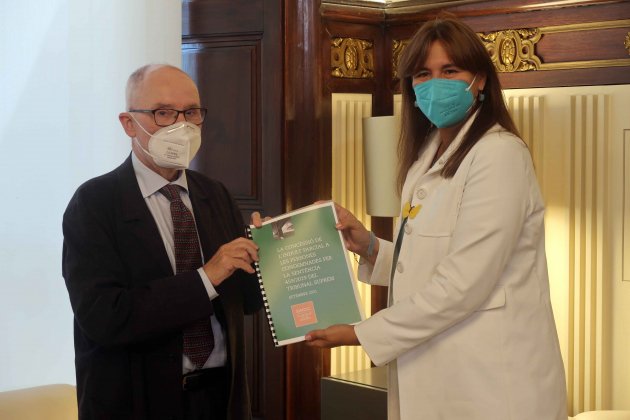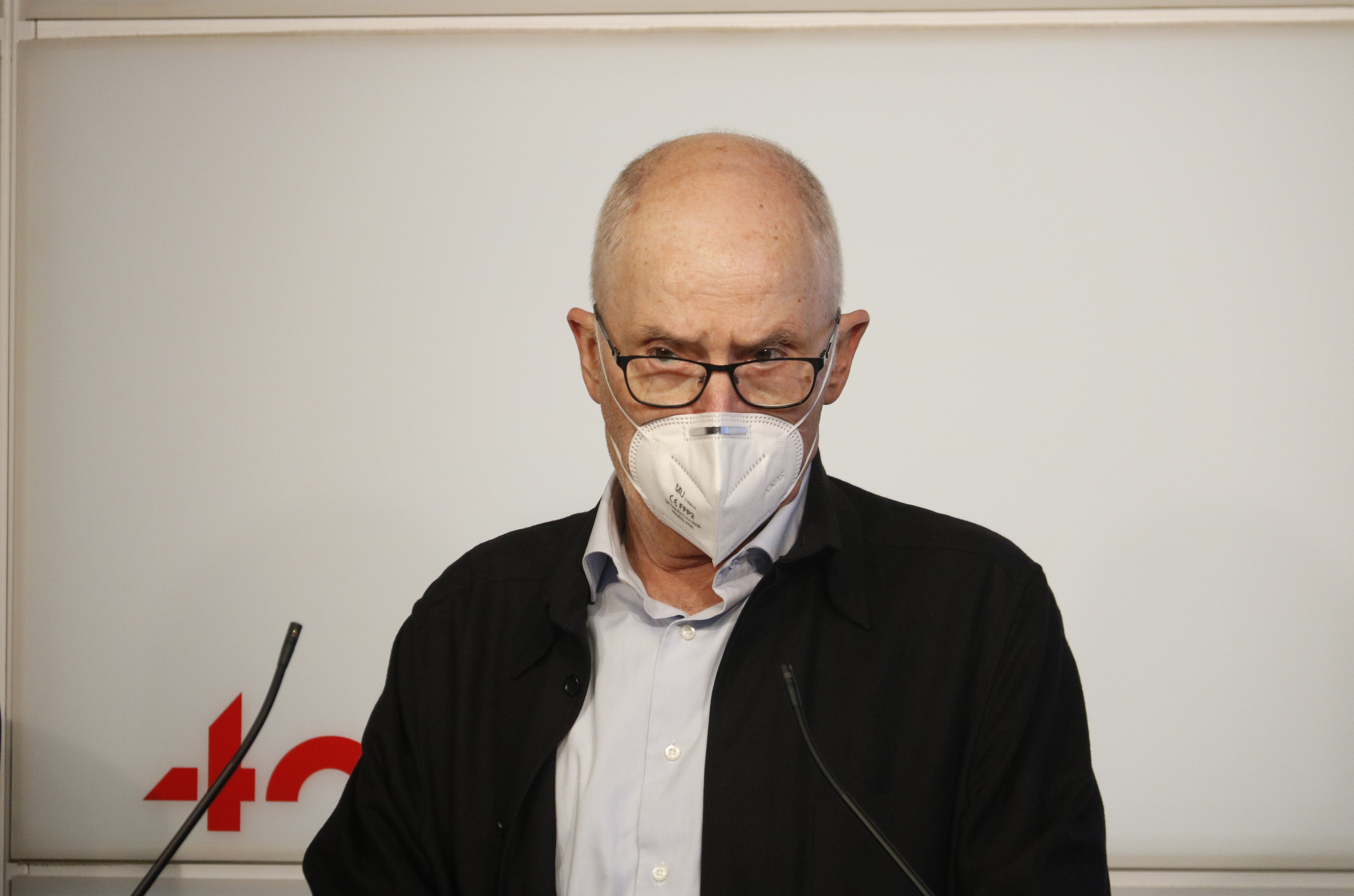The Catalan ombudsman, Rafael Ribó, has requested that pardons be granted in advance to all those under investigation for sedition or rebellion arising from the 2017 referendum and independence process, which would, in particular, be a way to resolve the situation of the Catalan pro-independence leaders in exile.
As detailed in a report entitled 'The granting of partial pardons to persons convicted by Supreme Court decision 459/2019', which was delivered today to the speaker of the Catalan parliament, Laura Borràs, the possibility of granting pardons in advance of a conviction is included in the 1870 Spanish law on pardons, which Ribó asserts is "fully in force" with regard to the "social upheaval" caused by the events of October 2017 in Catalonia. Ribó also demanded that the Spanish Congress pass an amnesty law - as proposed unsuccessfully in Spain's lower house by the pro-independence parties - in order to "wipe the slate clean". He also demanded the reform of the Spanish offences of rebellion and sedition, which fell from the Pedro Sánchez government's priorities after the Catalan political prisoners received partial pardons in June.
Ribó also described it as "manifest inconsistency" that the ban on office holding has been maintained for the pardoned prisoners, meaning that none of them can stand for electoral office until their sentences - of 9 -13 years - are over. "They are left out of political contention for a long period when hundreds of thousands of Catalans voted for them," said the ombudsman.
According to Rafael Ribó, after analyzing the argument used in granting pardons, he considers it "an incongruity" to appeal to "public utility" and yet to require those pardoned to remain disqualified from being able to hold public office, which implies that they are "excluded from political activity."

On the formula of a "pardon in advance", the Catalan ombudsman believes that it could be used "for all people" indicted for alleged independence process offences, including those who are "exiled", and he explained that "the law governing pardons provides for this approach" and that it even "introduces a precision that allows it to be applied to the crimes of sedition and rebellion."
Seven recommendations
Ribó makes seven recommendations in his report addressed to the various institutions, both those of the Spanish state and the Catalan autonomous government, including for the central executive to "unblock" the reform of the Penal Code to modify the crimes of sedition and rebellion.
Other recommendations he makes are to "reconsider" the penalty of bans on office holding for those pro-independence leaders already pardoned, and for an amnesty law to be heard in Congress, since Ribó sees it as "shocking" that the procedural Bureau of the Spanish lower house "took on the role of the Constitutional Court and prevented it from being considered".
The recommendations made to the Catalan government and parliament are to "monitor" the resolution passed by the Council of Europe that urges Spain to end the criminal cases against Catalan pro-independence activists. The report also asks the Catalan government's justice ministry to avoid discrimination in the granting of pardons based on gender.

